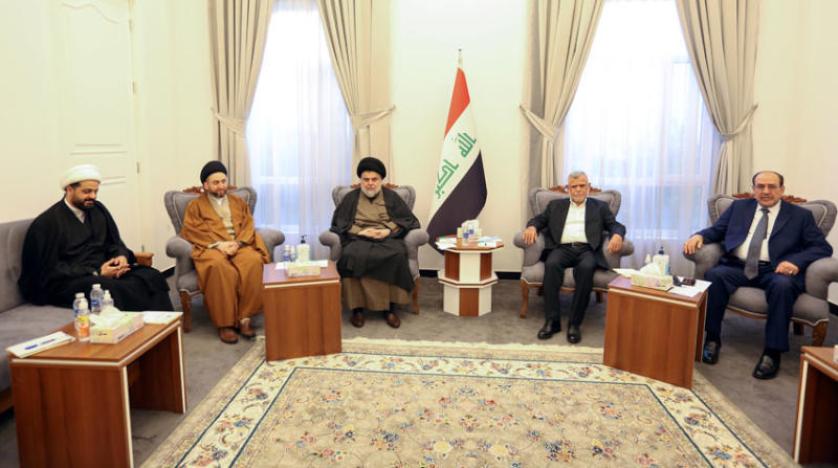As time has passed, Iraq’s dreams have been ground to dust, and the spirits of its people are now little more than faded shadows, lost in a sea of years filled with chaos and confusion. They have no shore to cling to, no place to rest. In this era, they wander aimlessly, without shelter, without peace, their hearts gripped by the weight of their suffering. Their minds are overwhelmed by swirling rumors, doubts, and nightmares. The pursuit of governance and control seems the only thing left that captures their attention.
After the long struggle, Muqtada al-Sadr, once a warrior of grand dreams, stepped down from his lofty ambitions. He had exhausted all his options, his last attempts faltering. Drawn back into the embrace of his homeland, he now licks the wounds of a crushing defeat, retreating to the sidelines as his opponents within the Coordination Framework advance. He waits for them to falter, hoping they, too, will fall victim to the same crises that have left the country in tatters. His hope is that they will become easy prey, easily devoured by both distant and close adversaries, mocked and despised by those around them.
Muqtada, as he often does, has retreated to his golden cage in Al-Hanana, wrapped in the protection of his loyal minister, Saleh Muhammad al-Iraqi. From there, he laments his fate, howling about his victimhood, promising chaos and vengeance while cursing those in power. He rails against the “cake” devoured by the Coordination Framework, claiming that only crumbs remain. His followers echo his complaints, urging them to distance themselves from this “Abbasid” government, which he describes as a Gog and Magog force, where the people’s will is suppressed, and their voices silenced. But Muqtada conveniently forgets that during his time leading the Mahdi Army, he, too, silenced the voices of the people—through violence and intimidation—robbing them of their basic rights. Now, he cries out for those very rights he once trampled.
His relentless attacks continue, as he condemns the formation of this government, vowing vengeance against its creators and participants. But his words ring hollow, a cry too late. Enter Prime Minister Mohamed Shiaa Al-Sudani’s government, which promised to deliver reform and “purification” but has already shown signs of reverting to the same broken promises that have plagued the country for years.
In his first press conference, when asked about Maliki’s interference in the removal of governors from the Sadrist movement, Al-Sudani did not deny it. Instead, he attempted to justify the political moves, offering flimsy excuses as though he were trying to appease both sides, playing the political game. The Iraqi public found this troubling, as Al-Sudani failed to stand up to Maliki, instead allowing his influence to permeate decisions that should have been purely governmental. This lack of transparency revealed the true nature of the government—one that wears the cloak of religious leadership while hiding the corrupt forces of militias behind the scenes.
This marks the first clear sign of the government’s fragility, as it begins to show the extent to which it is swayed by Iranian influence and the militias operating within Iraq. The initial promises of austerity and reform soon became transparent lies, and the government began to deny any sectarian motivations behind the dismissals of certain officials. Despite their attempts to justify these actions as legal, the public saw through the deception. The stench of corruption was undeniable.
Under pressure, Al-Sudani reversed course, reinstating some of those he had dismissed, including the governors of Dhi Qar and Najaf. This move seemed aimed at saving face, but it only reinforced the perception that the government’s decisions were weak and easily swayed by public opinion. It became evident that Iraq’s leadership was little more than a puppet government, its strings pulled by Iranian hands in a country choking on corruption. Moreover, these moves were seen as part of a broader Iranian strategy to dismantle Al-Kadhimi’s legacy and pave the way for Qais Khazali and his militia factions to take control of the country’s intelligence services.
So, the question remains: What is Al-Sudani’s government offering in terms of alternatives to the current system? On what solid foundations can they build Iraq’s future infrastructure and development? As of now, the answer remains unclear. But the political game continues, and as new opportunities emerge, the power struggles in Iraq seem set to shift yet again.
